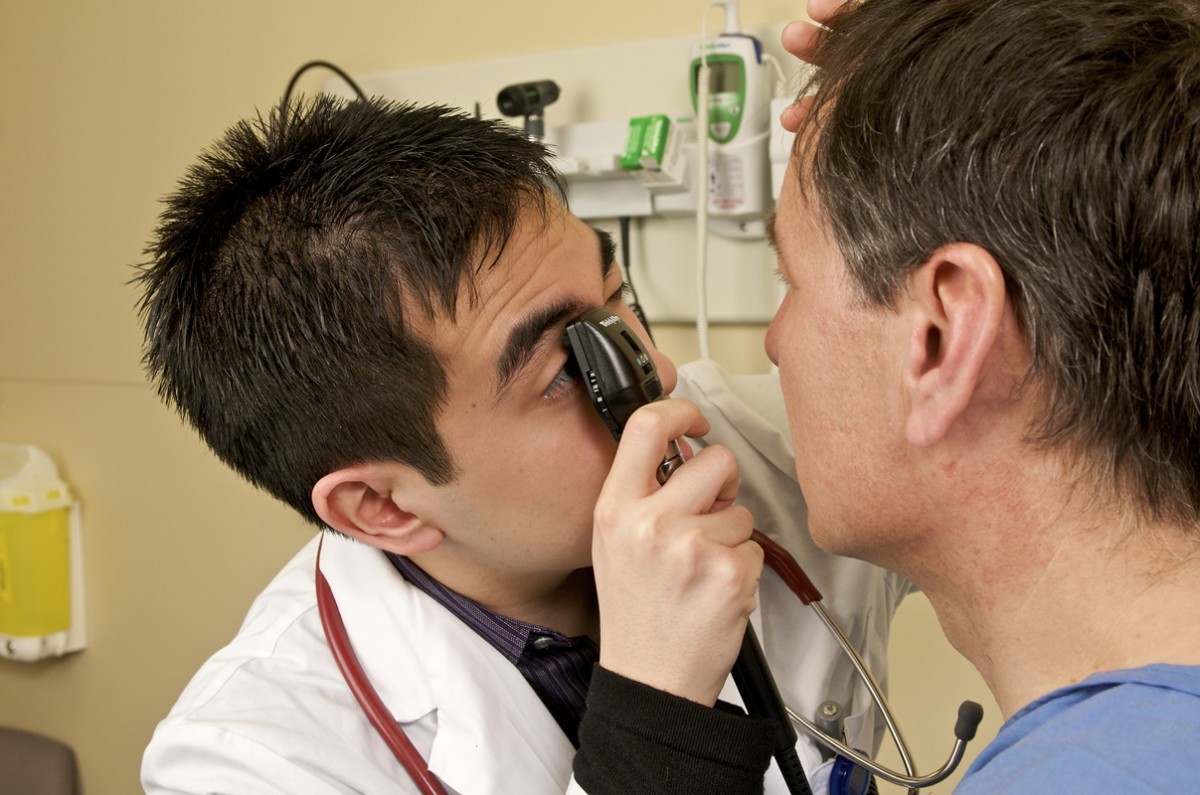
About 90 per cent of our third-year students will complete their Family Medicine rotation in a rural or northern setting
Rural communities welcome Med students, train the next generation
Third-year University of Manitoba medical students are in the middle of the “hands on” part of their education, this year caring for patients at hospitals, doctors’ offices and outpatient clinics – including in many rural communities across Manitoba.
The clinical clerks complete 48-weeks of rotations focusing on the major clinical disciplines. About 90 per cent (or over 80) third-years will complete their Family Medicine rotation in a rural or northern setting. As well, another 20 will also perform rotations in Thompson, Portage and Brandon in OB/GYN, surgery and other specialties.
Rural and northern communities are renowned for the diverse clinical exposures afforded visiting med students – as well as laying out the welcome mat in a big way.
“Distributed teaching sites give our students an all-around exceptional experience of what rural practice and rural living are like.”
“I want to sincerely thank all of the rural communities and their physicians, clinics and health care providers for being so involved with training the next generation of healthcare providers. Their rigorous teaching and broad clinical environments along with their warm hospitality expose our students to the benefits of rural medicine,” says Brian Postl, Dean of the Faculty of Health Sciences at the University of Manitoba. “Distributed teaching sites give our students an all-around exceptional experience of what rural practice and rural living are like.”
Don Klassen, director of distributed medical education in the department of family medicine, and medical director at Manitoba’s Office of Rural and Northern Health (ORNH), noted there are a number of initiatives across the learning curriculum that sends medical students around the province for clinical exposures.
“We hope, after students gain rural and northern health care experience, that they will consider returning to practice in a rural setting,” he said.
In first year, all 110 medical students participate in “Rural Week” a one-week, hands-on learning experience each May that exposes students to rural and northern medicine and provides an opportunity for communities to showcase themselves and promote the benefits and rewards of health service delivery in smaller towns and communities across Manitoba.
Nathan Coleman, now a first-year resident in the Family Medicine Northern & Remote Stream, was intrigued by the North following a “northern exposure” mentorship program experience. “I really liked the comprehensive approach…. Through that exposure and med school it was confirmed that I like the whole person, whole lifespan approach,” he says.
Timothy Gosselin, now a first-year resident in the Family Medicine Bilingual stream called his five-week Family Medicine rotation in Churchill a “game changer” that made him realize that rural practice would suit him well. Some of his training will take place in Ste. Anne and Notre Dame de Lourdes.
“I felt really blessed by my preceptors who took an interest in me as a person, invested time, modeled continuity of care, and mentored me during my time there [in Churchill],” he said.
The College of Medicine’s residency training program has expanded significantly across the province over the past several years.
Presently, there are 20 positions (annually) in Family Medicine Rural Residency Streams which include Boundary Trails (Winkler/Morden), Steinbach, Portage, Brandon, Dauphin and the Bilingual program. Another 15 residents train in the Family Medicine Northern & Remote stream in communities in Northern Manitoba.
Ashleigh Sprange discovered she loved the rural atmosphere and the way medicine was practiced in a rural setting when she completed her family med rotation in Dauphin. Returning to Parkland Regional Health Authority for her Family Medicine residency training was an easy decision given how much she loved her experience there. She had also worked with communities in The Pas and Thompson during her MD degree.
“In each of these places, I felt embraced by the communities, and my preceptors were eager to teach me both about medicine and their passion for rural medicine,” she recalls.
She said the rural connections she made as a medical student continues to benefit her as a resident providing further learning opportunities and potentially future job prospects.
“I have always enjoyed the atmosphere of a tight knit community and to know that I am doing my residency in a place where I am truly appreciated by the community is a really nice feeling,” she said, adding, “It’s been a privilege and an honour to complete medical school [in Manitoba] and it will continue to be a privilege and an honour to give back to Manitoba as a family physician.”
For more information contact Ilana Simon, Director of Communications & Marketing, College of Medicine, Faculty of Health Sciences, University of Manitoba, 204-789-3427, (cell) 204-295-6777 or ilana.simon@med.umanitoba.ca
Founded in 1883 as Western Canada’s first medical school, the University of Manitoba College of Medicine has graduated more than 7,000 physicians who have become influential medical leaders, world renowned health researchers and dedicated doctors. As Manitoba’s only medical school, the U of M College of Medicine, Faculty of Health Sciences has educated and trained the majority of our province’s physicians.






